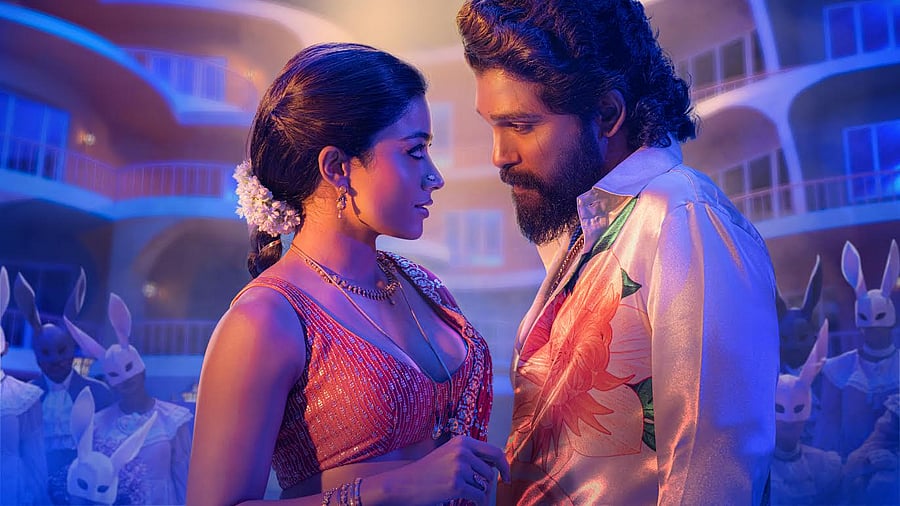
Allu Arjun and Rashmika Mandanna in 'Pushpa 2: The Rule'.
Credit: Special Arrangement
Sukumar’s sequel to the 2021 blockbuster film mainly revolves around the conflict between Pushpa (Allu Arjun), the now established kingpin of a red sandalwood syndicate and the police officer Shekhawat (Fahadh Faasil). Shekhawat, who is insulted by Pushpa in the first movie, is out to seek revenge.
Pushpa is now happily married to Srivalli (Rashmika Mandanna) and is focused on growing his political connections. He has made a boatload of money and does not shy away from showing it.
In the prequel, we see Pushpa, born out of wedlock, as the most reliable coolie in the syndicate. The film, apart from the fights and the smuggling, also showed the essence of village life. It became an instant hit. However, Pushpa 2 focuses more on selling the movie rather than storytelling.
Pushpa would have perhaps worked as a novella or a magazine serial. While the story has a few exceptional qualities, the treatment and the portrayal can be overbearing and may not suit everybody's tastes.
For example, watching the scenes involving Srivalli and Pushpa can make one squirm and wonder why they brought their child along. But at the same time, Srivalli is a strong woman who makes bold choices. She loves her gangster husband but is cognisant of her needs and desires. Such characterisation is rare in Indian commercial cinema where female leads are often used as a prop.
Arjun’s portrayal of Pushpa is loud and gaudy. He wears tacky floral shirts, throws sleazy dialogues and walks with one shoulder in the air. However, what sets Pushpa apart from other gangsters in Telugu films is that he does not hide his vulnerabilities.
The grandeur of the Gangamma jaatra in the film, where Pushpa dresses up like a woman and dances before the goddesses, is a testament of this.
The act is said to make a man’s wishes come true. When Srivalli asks him what he wished for, he says, a girl child — if it’s a boy, he will remain without a family name but a girl when married can get a family name. This scene depicts the harsh reality of the society we live in. Even for someone like Pushpa, before whom the entire village bows down, illegitimacy continues to haunt.
Fahadh steals the show with his restlessness and humour. Devi Sri Prasad’s music is nothing exceptional. Mirosław Kuba Brożek’s cinematography is brilliant, especially the aerial shots of trucks wading through the river.
These are some takeaways from the otherwise excessively overblaring film. The film ends abruptly announcing a third part.